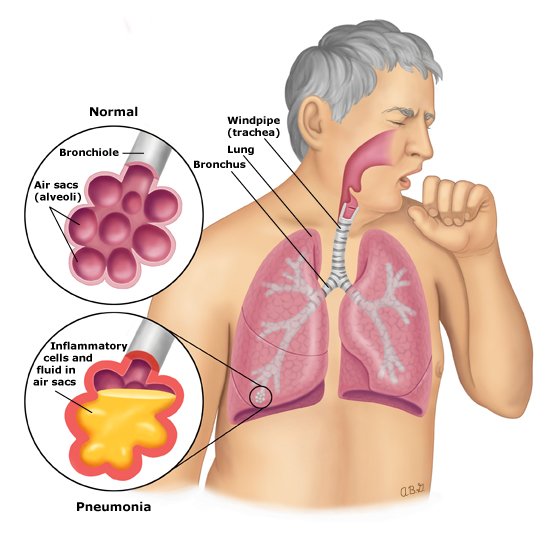Pneumonia has proven as a fatal disease for many years with its tendency of being contagious.
It is basically a disease that affects both the supporting wheels of the body. Is pneumonia contagious or not is the question that bothers a lot of us when we see a carrier around us. Mostly Fungi, Viruses, and Bacteria cause this terrible disease. Inflammation is also another serving factor as it is in the air sacs present in the human lungs. These air sacs are termed as alveoli.
What does pneumonia do?

Inflammation causes fluid or pus which makes it difficult to breathe. Pneumonia is a contagious infection. However, it depends on the immune system of the body and the disease varies from human to human.
Is Pneumonia Contagious? Let’s find the answer to this question and point down to the details.
How’s Pneumonia Spread?

A very basic question that you should know about pneumonia is how does the disease spread? Mostly, it’s either a virus or bacteria. These viruses and bacteria can spread in many ways like:
- Coughing or sneezing without putting hands on your mouth or without wearing a mask
- Sharing food and utensils like a cup, glass, etc
- Getting in contact with items that have been previously in contact with carrier
- Not taking care of personal hygiene
The fact, that not everyone gets in contact with these germs, and thus it is not necessary that everyone will develop pneumonia.
People with a higher risk of developing the disease
- Children under age 2
- Adults with ages over 65+
- Pregnant women
- A person with a weak immune system e.point 124 | g.point 126 | People undergoing chemotherapy
- People with an existing chronic disease like Diabetes or cancer.point 209 |
ADVERTISEMENT - Smokers
- A person with a king disease e.point 32 | g.point 34 | asthma or even heart diseases
When should you see a doctor?
You need to consult a physician if you are aware of the symptoms and have doubts.point 258 |
You should rush to a medical expert if:point 32 | 1
- Have pain in the chest
- You are coughing for more than seven days.
- Worsening of symptoms
- A problem in breathing for more than seven days
- High fever over 38°C for more than 3-4 days
Is Pneumonia Contagious? Types of Pneumonia
It is important that you know thoroughly which types of diseases are contagious. Let us dig a little deeper into it.
a) Bacterial pneumonia
If a bacteria has spread pneumonia in your body then it may be contagious. This includes:
- MRSA pneumonia or Methicillin-Resistant Staphylococcus Aureus
- SP or Streptococcal type of pneumonia
- Walking pneumonia
- Chlamydial type of pneumonia
How would a doctor help?
Usually, if you go to a doctor he will prescribe some antibiotics for the treatment of this type. After starting the antibiotic coarse the infection trend ends within 2 days. So Is pneumonia contagious? Yes, when it comes to bacterial pneumonia the type is expected to be contagious. Moreover, it can transfer from one person to another.
Viral Type
You need to know that viruses are the most contagious. Therefore, a Pneumonia is contagious if it’s developed by a virus. Pneumonia is caused by the same kind of viruses that causes flu and colds.
There may be other viruses that infect the respiratory system of the human body. This type of pneumonia is contagious until you recover fully.
b) Noncontagious Pneumonia
The type of Pneumonia that reflects this type is the one caused by Fungi. It is also known as a fungal infection.
c) Fungal pneumonia
Pneumonia has an inverse relation with the immune system of the body. Therefore, a person with a weak immune system can get this infection. The fungi that are the cause of this type of pneumonia live in soil habitat.
The difference b/w aspirational and fungal pneumonia
The fungi are inhaled by the environment and are not spread from one person to another. Aspiration pneumonia is the type that is caused by the gulping of food or liquid into the lungs. These are therefore not contagious.
Hence, not all types of Pneumonia are contagious. Only viral and bacterial types are contagious. These types can spread from one person to another.
Don’t forget to share the article with your friends and family.
